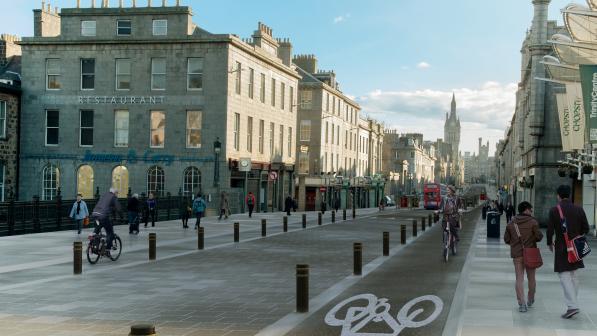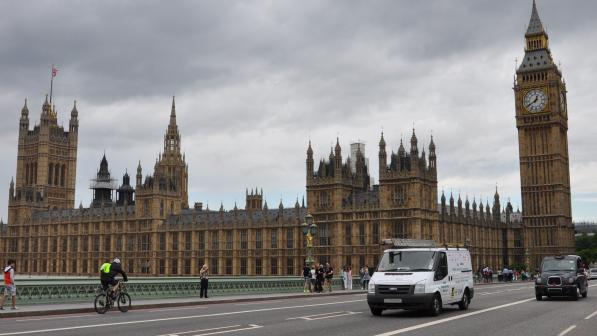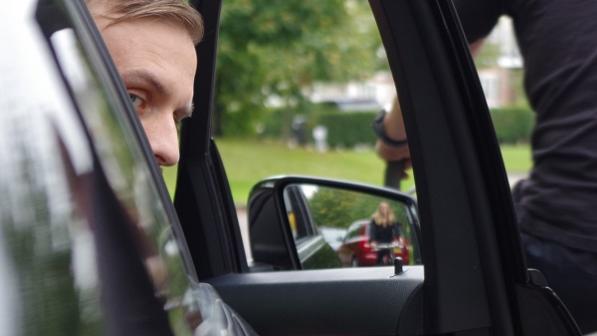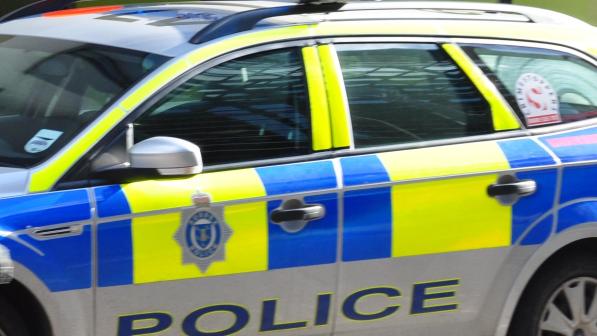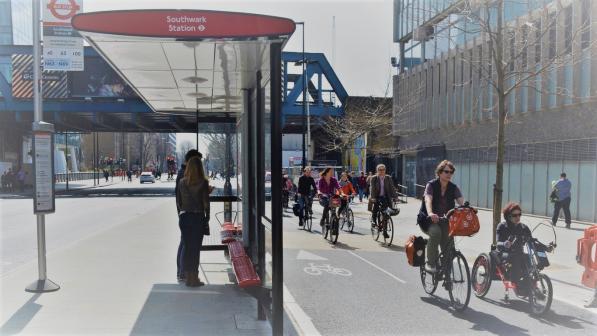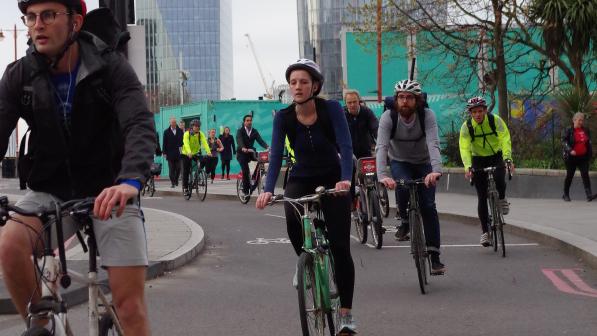Cycling UK asks Government “Why wouldn’t you” make cycling safer

- Campaign backed with emotional appeal from Darrell Martin, whose brother was killed by a texting driver
- Charity calls for changes to Highway Code including teaching of the Dutch Reach
- Duncan Dollimore, head of campaigns, available for interview
Launching its ‘Cycle safety: make it simple’ campaign, the charity is asking the Government “why wouldn’t you” make these changes an immediate priority as part of its Cycling and Walking safety review. They include improvements to:
- Road and street design
- Changes to the Highway Code
- Safer vehicles, especially lorries
- Enforcement
- Road traffic offences and penalties review
- Funding
Cycling UK’s campaign is backed by Darrell Martin, brother of cyclist Lee Martin who was killed after being hit by a driver who was texting at the time.
Lee was cycling on the A31 near Bentley, Hampshire, in August 2015 when he was hit and killed by a van driven by Christopher Gard. The driver was texting a friend at the time of the incident and had been stopped eight times previously for using a phone while driving and been in court six times for the offence – but never banned.
“Drivers who are clearly putting people’s lives at risk should be taken off the roads before they’re given the chance to kill,” said Darrell Martin, Lee’s brother. “We shouldn’t be waiting for a tragedy to happen, and certainly drivers who have seven or eight convictions shouldn’t be given more chances to get back behind the wheel.
“The justice system needs to take this much more seriously. If they had, my brother would still be alive.”
Among the steps suggested by Cycling UK to make the roads safer include making amendments to the Highway Code, such as the introduction of the ‘Dutch Reach’.
The Dutch Reach, so called because it is a standard practice in the Netherlands, involves opening a car door with the hand opposite to the door itself, for example using your left hand to open a door on the right. Not only does this mean you have a better chance of seeing an approaching cyclist or motorcyclist, but also the car door is restricted in how far it can open.
Supporting amendments to the Highway Code is Jeff Boulton. In July 2016, Jeff’s son, Leicester school teacher Sam Boulton, was killed on his 26th birthday in a tragic car-dooring incident outside Leicester train station.
“By introducing something as simple as the Dutch Reach into the Highway Code, teaching drivers to look over their shoulder before opening their door, we could make the journeys of hundreds of cyclists safer every year,” said Mr Boulton. “It’s easy to teach and costs nothing, so why wouldn’t you?”
Cycling UK is also calling for greater resources to be given to roads policing, a national roll out of Transport for London’s restriction of unsafe lorries, the creation and adoption of national design standards for cycling infrastructure and an adequate level of funding to encourage more cycling while making it safer.
Paul Tuohy, Cycling UK’s CEO, said:
“Air pollution, obesity, congestion, increasing danger on our roads – these are all major problems the Government faces. With ‘Cycle safety: make it simple’, Cycling UK has done the hard work and provided a range of easy and cost-effective solutions to all of these problems.
“This isn’t just about cycling, because more and safer walking and cycling can and should go hand in hand. Implementing Cycling UK’s proposals would make our streets safer and more attractive for everyone.”
Members of the public can support Cycling UK’s suggestions via an online action at: www.cyclinguk.org/whywouldntyou
A short video interview with Darrell Martin and Jeff Boulton is available on YouTube.
Notes to editors
- Cycling UK, the national cycling charity, inspires and helps people to cycle and keep cycling, whatever kind of cycling they do or would like to do. Over a century’s experience tells us that cycling is more than useful transport; it makes you feel good, gives you a sense of freedom and creates a better environment for everyone. www.cyclinguk.org
- For more information on ‘Cycle safety: make it simple’ visit: www.cyclinguk.org/cyclesafety
- For further information on the tragic death of Lee Martin see: https://www.cyclinguk.org/news/magistrates-allowed-texting-driver-keep-licence-lee-lost-life
- For further information on Sam Boulton see: https://www.cyclinguk.org/press-release/conviction-upheld-taxi-driver-death-sam-boulton
- There were 3,108 reported collisions where ‘vehicle door opened or closed negligently’ was a contributing factor in incidents attended by the police between 2011 and 2015. The breakdown below were released following a FOI from Cycling UK to the Department for Transport requesting a breakdown of the “Contributory factors for reported road accidents (RAS50)” see RAS50007 specifically https://www.gov.uk/government/statistical-data-sets/ras50-contributory-factors
- For further information on the Dutch Reach and Cycling UK’s position see: https://www.cyclinguk.org/blog/samjones/dutch-reach
- For further information on the Department for Transport’s Cycling and Walking safety review see: https://www.gov.uk/government/consultations/cycling-and-walking-investment-strategy-cwis-safety-review
Press contact information
For more information contact the national Cycling UK Press Office on 01483 238 315, 07786 320 713 or email [email protected]
